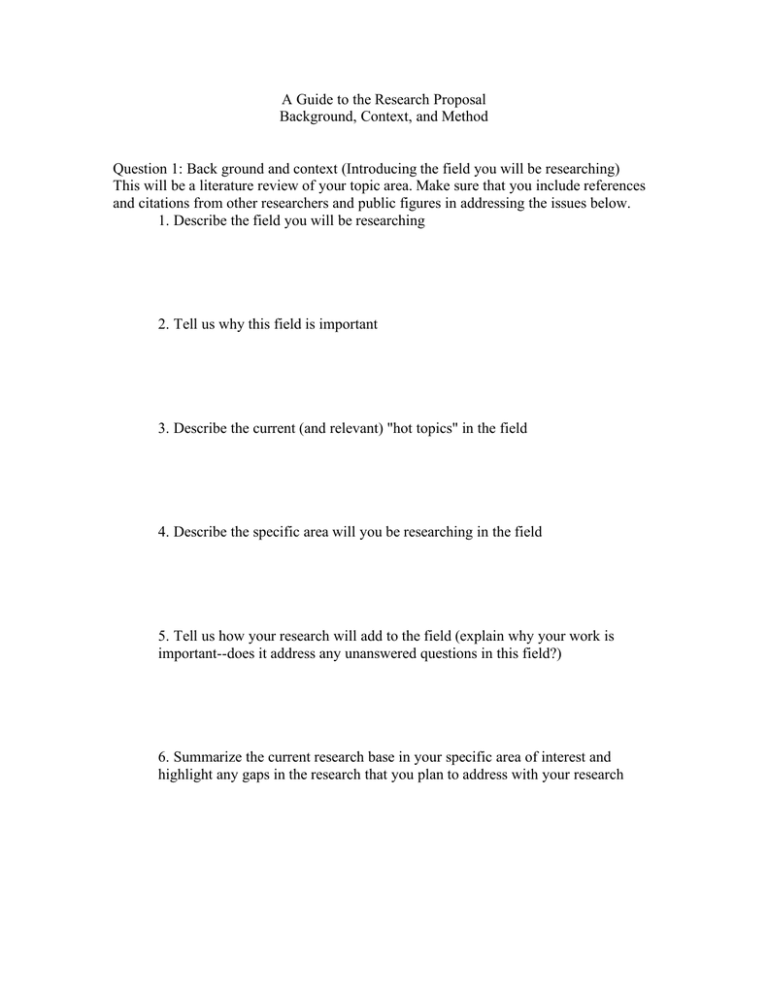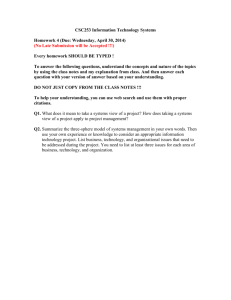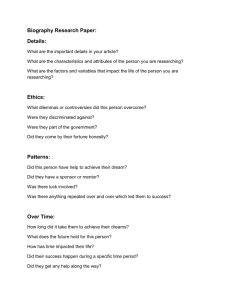A Guide to the Research Proposal Background, Context, and
advertisement

A Guide to the Research Proposal Background, Context, and Method Question 1: Back ground and context (Introducing the field you will be researching) This will be a literature review of your topic area. Make sure that you include references and citations from other researchers and public figures in addressing the issues below. 1. Describe the field you will be researching 2. Tell us why this field is important 3. Describe the current (and relevant) "hot topics" in the field 4. Describe the specific area will you be researching in the field 5. Tell us how your research will add to the field (explain why your work is important--does it address any unanswered questions in this field?) 6. Summarize the current research base in your specific area of interest and highlight any gaps in the research that you plan to address with your research Question 2—Methodology: Make sure you use and reference established methodologies from multiple sources. This will be a literature review of research method and data analyis. Make sure that you include references and citations from other research(ers) in addressing the issues below. 1. Describe your hypothesis/research question 2. Tell us how you plan to answer/test that question/hypothesis 3. Determine if your research is descriptive (describing what is), evaluative (testing an intervention), or theoretical/philosophical. 4. Describe the sample (who or what is the sample, how will you identify it). Will you need or have a control? Tell us how your sample will affect your conclusions (e.g., will the results be generalizable?) 5. Describe the tools you plan to use to gather your data (document analysis, interviews, assessments, surveys, case study, observations, statistical databases, etc.). Present a brief review of the literature defining the methods, supported by references to research applying the methods in similar situations (if possible). 6. Describe the manner in which you plan to analyze your data. Present a brief review of the literature defining the analysis methods, supported by references to research using the analysis in a similar manner. 7. Summarize the strengths and weaknesses of the approach you identified (the goal is to help the reader understand why this is the best approach) 8. Describe your expected timeline for completing this research.




